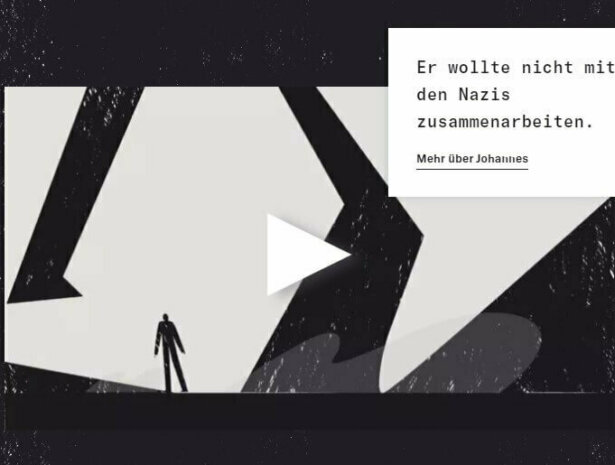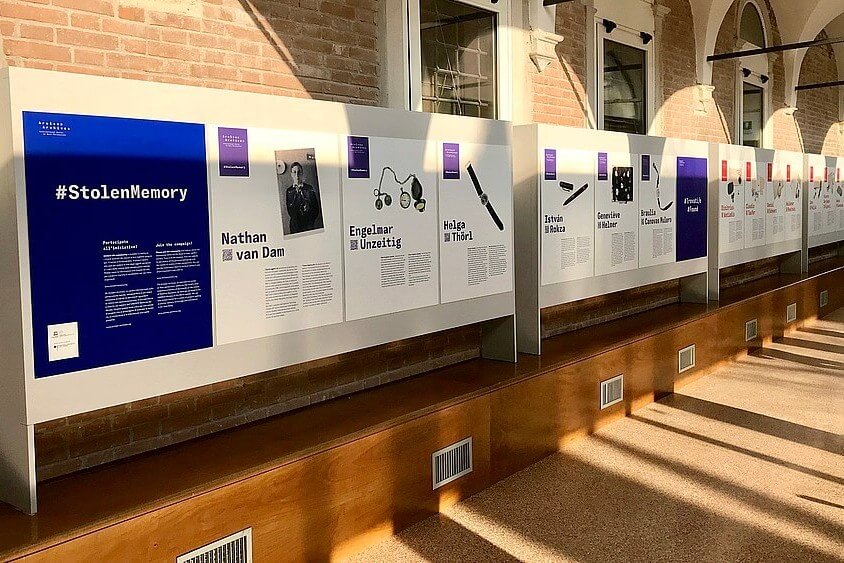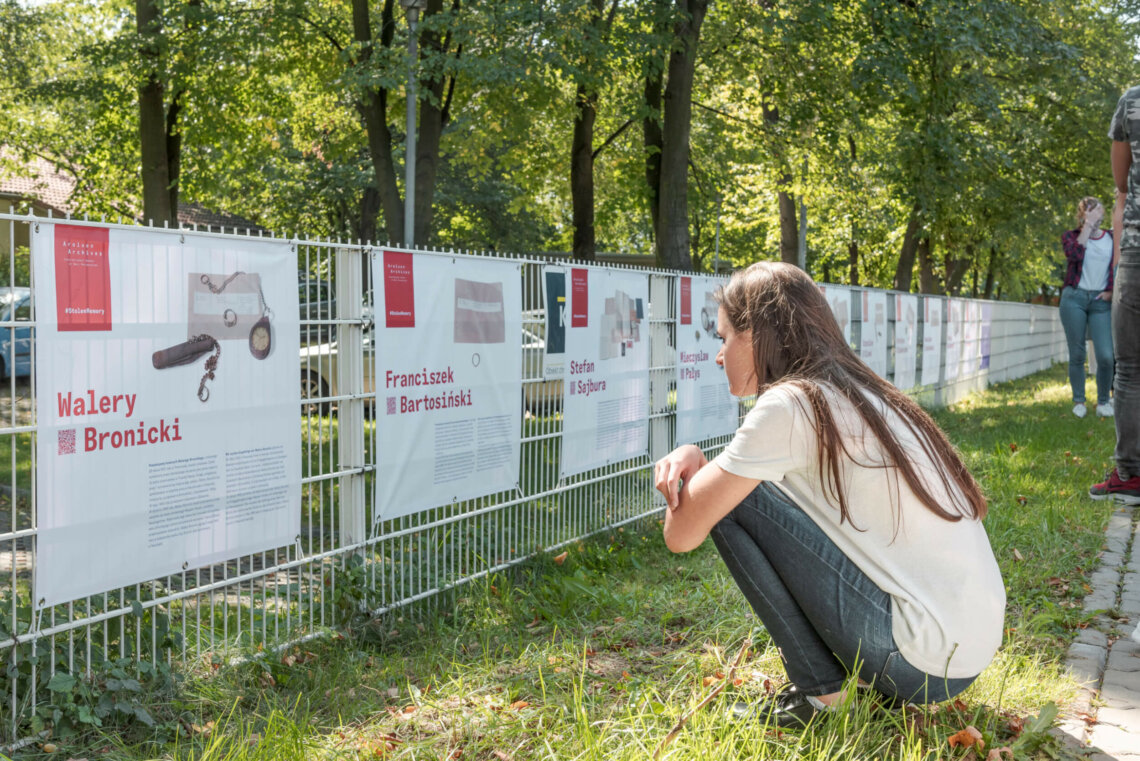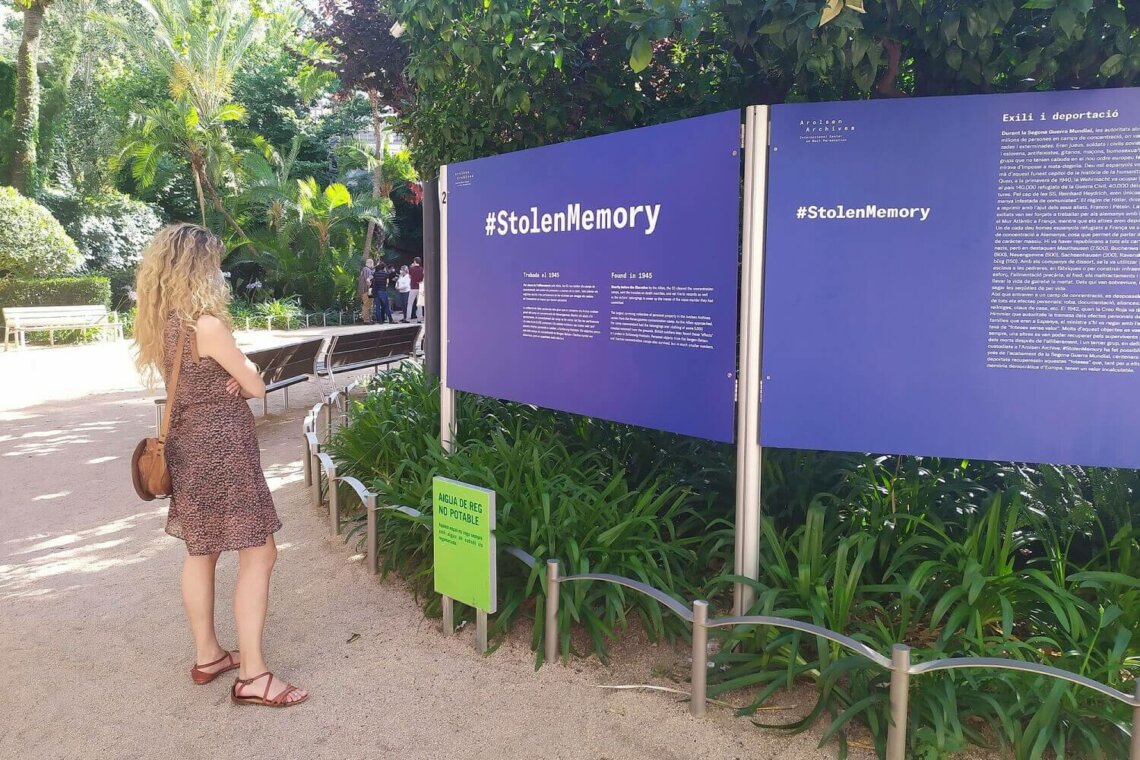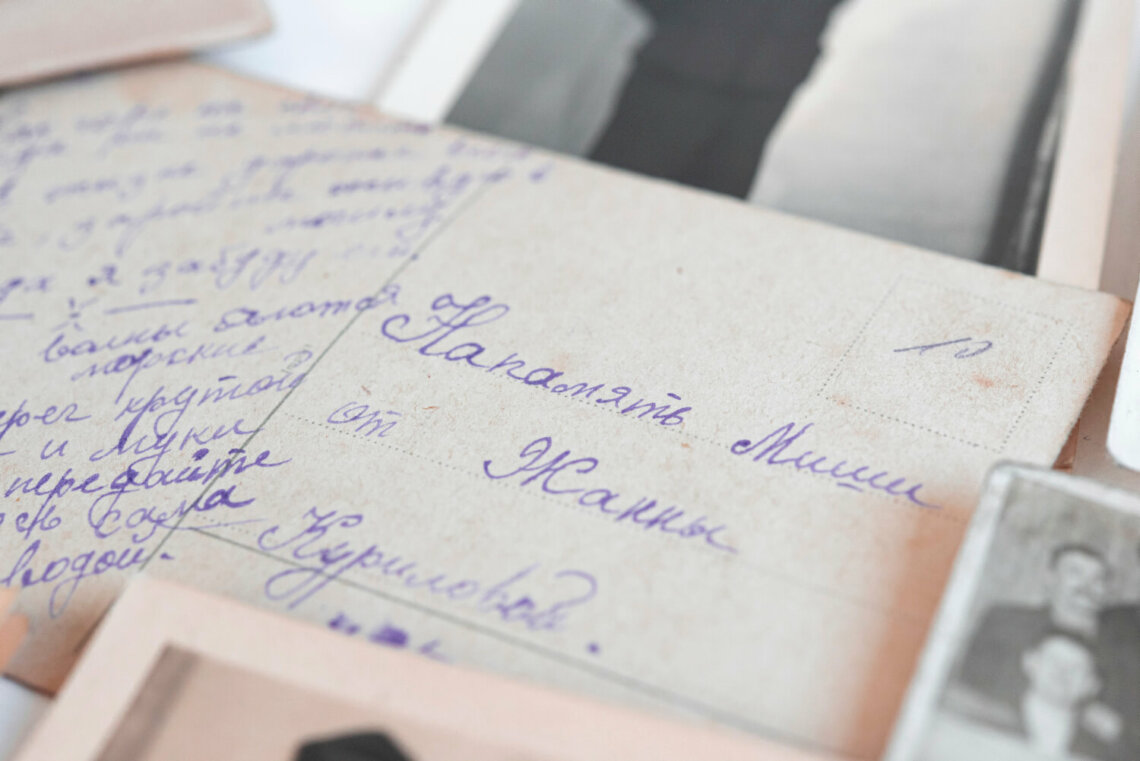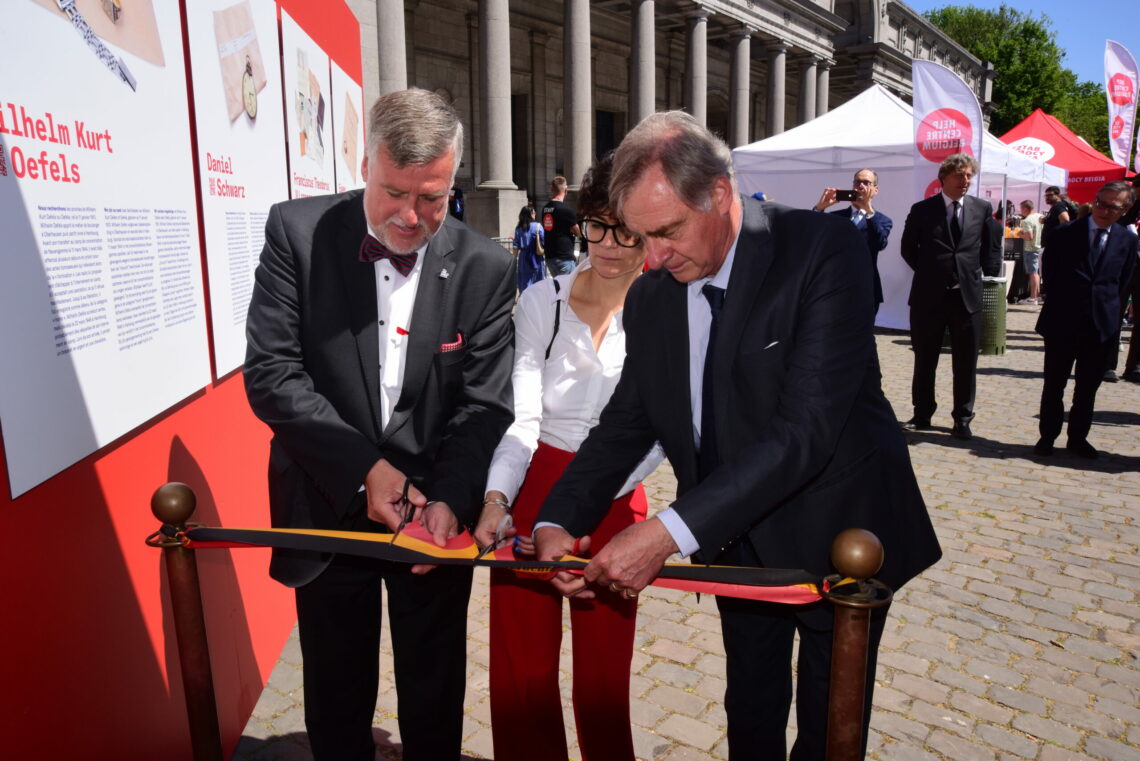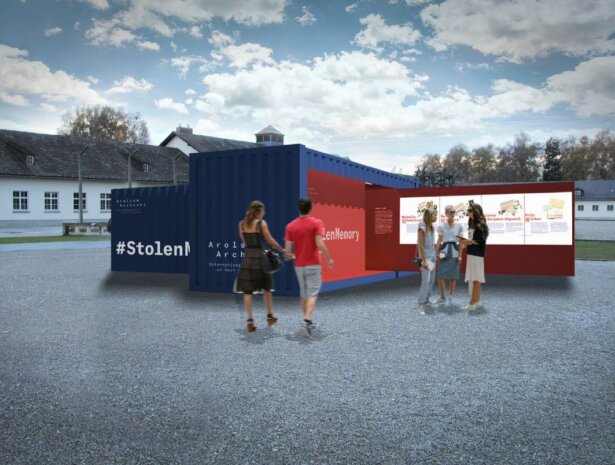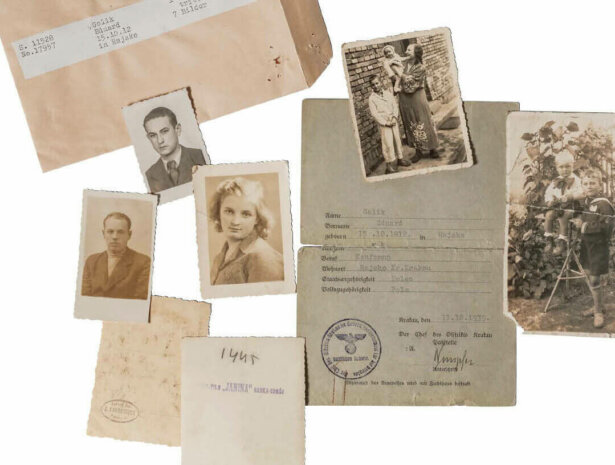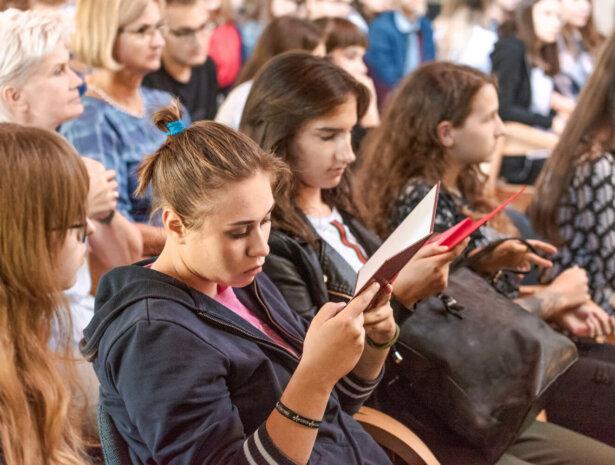#StolenMemory:
campaign and exhibition
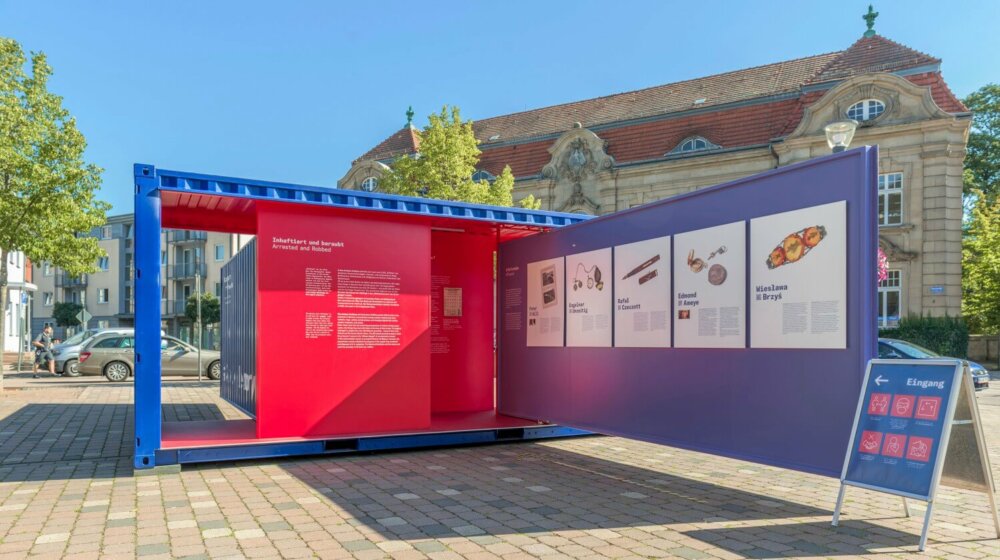
A watch and some jewelry, a wedding ring and some documents, a few letters and photos. The Nazis took people’s personal belongings away from them in the concentration camps. About 2,500 pieces of personal property belonging to former concentration camp prisoners are still being held in storage at the Arolsen Archives until they can be returned to the families of their owners. Thanks to the #StolenMemory campaign launched in 2016, several hundred families have already been found, often with the assistance of volunteers who help with searches in different countries.
The objects belong to victims of Nazi persecution from over 30 countries, mostly to people from Poland, Germany, and the former Soviet Union. The majority of the objects come from the Neuengamme concentration camp in Hamburg, while a smaller number are from the Dachau concentration camp.
The objects are of immeasurable value to the families concerned. They make remembering and remembrance more tangible because they are often the last remaining traces of victims of the Nazi regime. How and where these people died is rarely known. But these items are also important for the relatives of survivors, especially if the person concerned was unwilling or unable to talk about what they experienced while they were held in a concentration camp.
What is #StolenMemory?
The aim of the #StolenMemory campaign is to return as many of these stolen mementoes as possible. The Arolsen Archives invite volunteers to join in the search for the families concerned. Today, social media and the online availability of archival collections mean that there are now many more ways of searching actively than there used to be. Volunteers from many countries, including Poland, the Netherlands, New Zealand, France, and Spain, provide the Arolsen Archives with valuable support – sometimes by providing helpful tips, sometimes by conducting detailed research at local level. Journalists also report on the campaign and publish names and photos. This can lead to families coming forward themselves. National Red Cross societies also provide assistance. Since 2016, the personal belongings of more than 500 Nazi victims have been returned as a result of the campaign.
Exhibitions and educational projects
The Arolsen Archives have developed a number of exhibition formats to present the life stories of the persecutees, tell the stories of how people’s personal belongings were returned, and describe individuals whose families are still being sought. Whichever format is chosen – the traveling exhibition in a shipping container, a ready-to-print exhibition, or an online exhibition – #StolenMemory attracts a diverse audience and has already been shown in cities all over Europe, including Paris, Krakow, Barcelona, and Venice.
There are also a wide range of educational materials which can be used to incorporate #StolenMemory into school lessons or international youth work. To find out more about #StolenMemory, explore the links provided!

